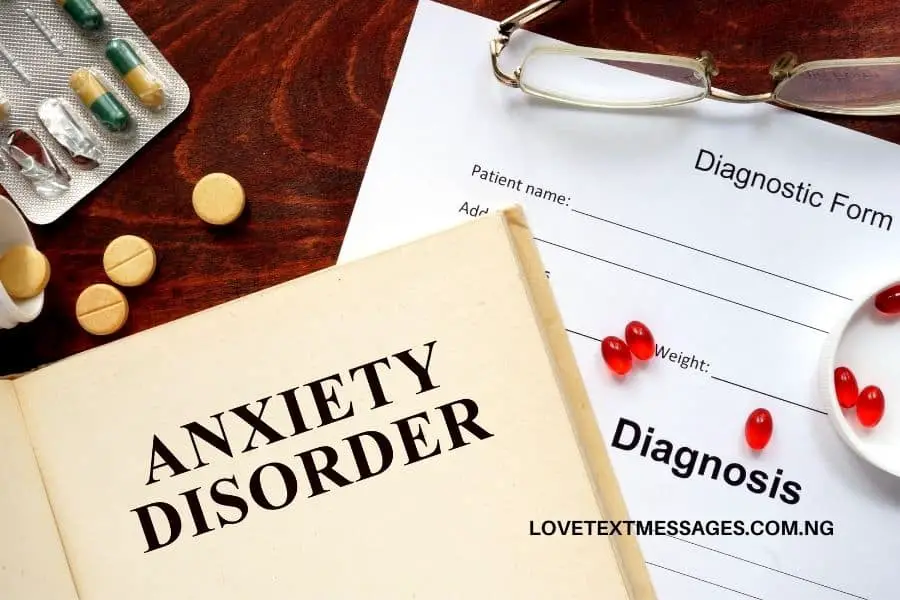Stress and anxiety can come and go, and it’s completely normal; however, if it’s persistent and it’s reducing your quality of life, you might have an anxiety disorder, which can potentially affect your social and romantic relationships, school and work, and other key areas of your life. This article will share with you different types of anxiety disorders and what can be done to treat them.
Contents on this Page:
What Are The Different Kinds of Anxiety Disorders?
Everyone has anxiety at some points in their lives, but what many people don’t know is that when it becomes chronic, it should be concerning. When anxiety becomes excessive, it may develop into an anxiety disorder, which is much more severe and debilitating than ordinary day-to-day stress.
Additionally, anxiety isn’t just one singular condition; rather, there are a handful of more specific issues that people can struggle with depending on the symptoms. However, for all anxiety disorders, there is an interference in a person’s ability to function normally, a fear that is out of proportion to the situation, physical symptoms like sweating and increased breathing and heart rate, and avoidance of triggers.
Nonetheless, here are five types of anxiety disorders that millions of people struggle with around the world.
1. General Anxiety Disorder
This is the most frequently diagnosed anxiety disorder because of the broad nature of the condition. It is characterized by excessive worrying, and people with this disorder can feel stressed and tense constantly. For people with GAD, it can cause people to fret about ordinary activities such as daily responsibilities, their relationships, their health, finances, to name a few examples.
2. Social Anxiety Disorder
An anxiety disorder that is more specific, yet extremely common, is social anxiety disorder. Social anxiety causes people to fear and dread situations where they have to interact with others and this can include public speaking, friendly gatherings, and even talking on the phone and texting. People with SAD often cite a fear of being embarrassed or judged by others, and will go to great lengths to avoid some of the aforementioned situations.
3. Panic Disorder
Panic attacks can happen once in a blue moon for some people, but for others, they can be recurring and the symptoms can be very severe, sometimes mimicking heart attacks. These recurrent panic attacks are a key indicator for panic disorder, and they can cause people to stress out in anticipation of the next one, which can occur anytime and anywhere.
4. Phobias
You’ve probably heard of phobias before, such as arachnophobia, (the fear of spiders), claustrophobia (the fear of enclosed spaces), agoraphobia (the fear of being unable to escape) or aerophobia (the fear of flying), and people who have specific ones will have intense anxiety towards the source of it, while also recognizing that their fear is irrational and excessive.
5. Separation Anxiety
People who have separation anxiety worry about being detached from people they find important in their lives, but it can also include pets as well. They also fear something bad happening to those they love. Both kids and adults can be diagnosed with it, and they may be unwilling to part with their loved ones, such as avoiding sleeping away from home.
How Anxiety Disorders Are Treated
Anxiety disorders are incredibly problematic in many ways, but at the same time, they are very treatable. Medication may be prescribed to help deal with some of the symptoms, but overcoming an anxiety disorder will typically involve therapy, and this can include techniques like cognitive behavioral therapy and exposure and response prevention. Many professionals are trained to help people with anxiety disorders, especially the ones available at BetterHelp, where you can connect to licensed counselors and therapists online today.
Conclusion
If you think you have one of these anxiety disorders, or you’ve already been previously diagnosed with one, effective treatment is available. By seeking help, you’ll be able to learn how to cope with anxiety and living life on your own terms – anxiety disorders shouldn’t dictate your life, and with perseverance, you can overcome them.


